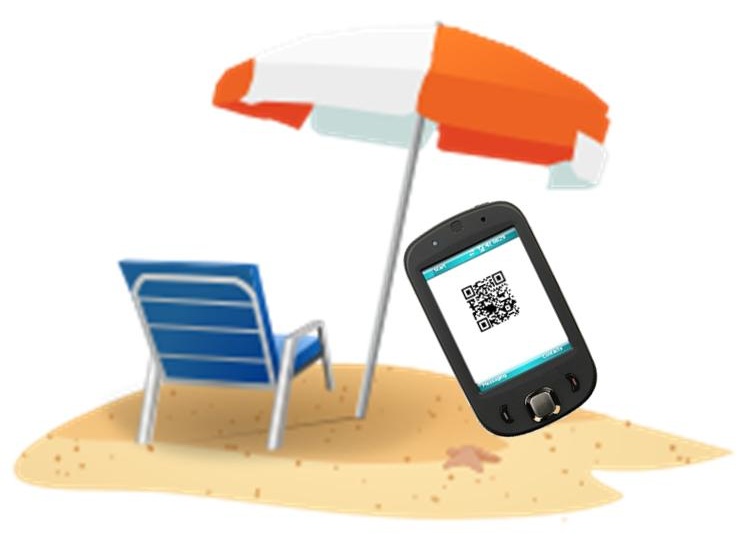The Sharbot Lake beach in Ontario, Canada will soon become much more smartphone friendly.
QR codes and free WiFi are about to bring a beach on Sharbot Lake into the 21st century, as Central Frontenac Township takes steps to add a more enjoyable and enhanced experience for visitors using high tech methods.
The beach will be only the first recipient of the high tech benefits in the area.
According to Mayor Janet Gutowski, as per a report from the Economic Development Committee, on the meeting of the council in Sharbot Lake, the committee was making the recommendation to use QR codes to help the township to draw attention to its points of interest so that they would be easier for visitors to find.
The QR codes will be scanned by the visitors so that they can learn more about what they can do in the area.
Visitors will be able to use their smartphones in order to scan the QR codes using any free scanner app. This, in combination to the free WiFi that will be available to those visitors, will allow them to instantly access the content that has been created to promote the township and many of the points of interest that visitors might otherwise miss.
According to Gutowsky, the QR codes will also provide smartphone users with other tourist information, such as the suggested starting points for the Sharbot Lake Historical Walking Tour. She pointed out that it is expensive to create and maintain signage, but that the barcodes aren’t, and that they “can be used by all sorts of devices such as smart phones and tablets.”
She also went on to point out that “We’ve been looking for inexpensive ways to highlight our points of interest and thought we’d start with the Sharbot Lake walking tour.” Moreover, she identified a number of other benefits of using the QR codes other than their low associated cost, and that is the quantity of information that they can provide to the scanner.
She said that far more information can be presented through the scans of QR codes than could ever be posted on a sign. Moreover, they are also environmentally friendlier, as they don’t require paper pamphlets that “end up as litter on the side of the road.”


